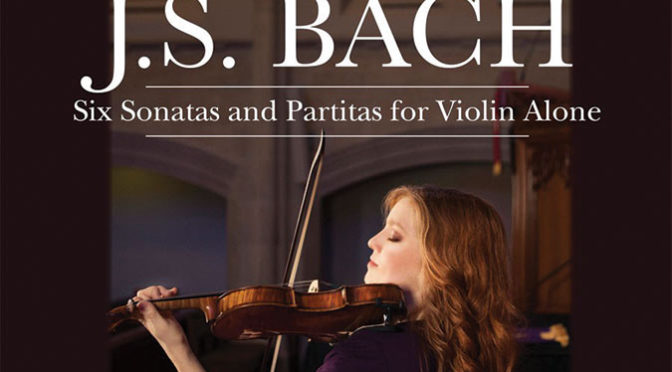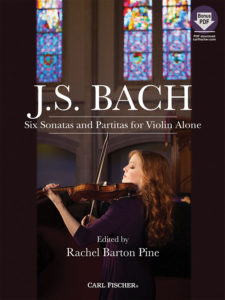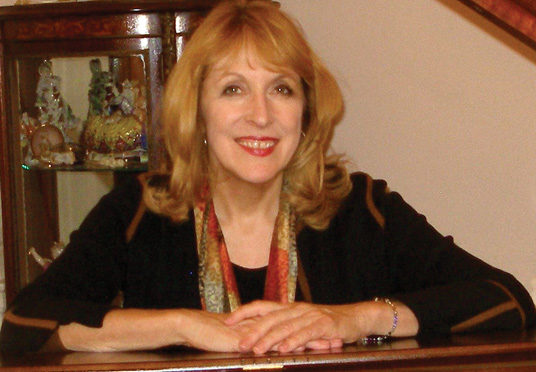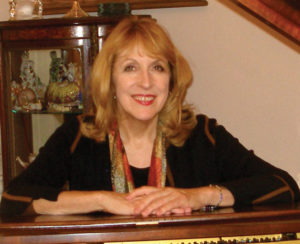The debate on the Mozart Effect — the notion that listening to classical music can boost brain power — remains open. Some claims from the ’90s media frenzy were debunked, yet other studies have shown evidence that Mozart’s music can improve cognition for young and old alike. Now, research from the University of Edinburgh has shown classical music benefits for children who suffer from epilepsy. A common test that detects electrical activity in the brain revealed: “there is an anti-epileptic effect of Mozart music.” Contemporary music did not have the same effect, but one 2015 study did show positive results from a classic jazz recording.
Tag Archives: classical music

J.S. Bach: Six Sonatas and Partitas
 Bach’s sonatas and partitas have captivated violinists for centuries. Having studied the music of Bach for decades, violinist Rachel Barton Pine, a member of Local 10-208 (Chicago, IL), created this edition complete with detailed historical notes, performance suggestions, and downloadable study materials. Her interpretation is informed by historical study and polished by years of performance insight, and closely follows her 2016 recording Testament: Complete Sonatas and Partitas for Solo Violin by J.S. Bach.
Bach’s sonatas and partitas have captivated violinists for centuries. Having studied the music of Bach for decades, violinist Rachel Barton Pine, a member of Local 10-208 (Chicago, IL), created this edition complete with detailed historical notes, performance suggestions, and downloadable study materials. Her interpretation is informed by historical study and polished by years of performance insight, and closely follows her 2016 recording Testament: Complete Sonatas and Partitas for Solo Violin by J.S. Bach.
J.S. Bach: Six Sonatas and Partitas for Violin Alone, edited by Rachel Barton Pine, Carl Fischer, www.carlfischer.com.

Creating a Bridge to Improvisation
Krista Seddon of Local 92 (Buffalo, NY) is a pianist and composer whose modern arrangement of Johannes Brahms’ “Lullaby” was selected for Buffalo’s new John R. Oishei Children’s Hospital, which opened in November. The hospital launched a contest for a new rendition of the old masterpiece, which is heard each time a baby is born. Her arrangement has a distinctively jazzy feel. “My objective was to take something so pure and beautiful as the Brahms’ ‘Lullaby,’ and respecting it fully, bring it into the 21st century,” she says. “It was a challenge.”

Krista Seddon’s arrangement of Johannes Brahms’ “Lullaby” was selected as the official recording for the maternity floor at Buffalo’s new Oishei Children’s Hospital. She is a member of Local 92 (Buffalo, NY).
A classically trained pianist with degrees from The New England Conservatory and the University of North Texas, Seddon has had a long affiliation with the Buffalo Philharmonic that includes recordings and solo performances. The Director of Ensembles at the historic Trinity Episcopal Church of Buffalo, Seddon regularly conducts dual lecture performances at schools and universities. In addition, she often collaborates with Alan Broadbent and Robert Nowak, members of Local 802 (New York City), and previously, she transcribed works for the late jazz pianist Marian McPartland.
Next year, in honor of what would have been McPartland’s 100th birthday, Seddon plans a tribute lecture tour performing McPartland’s signature portraits of artists and discussing their 10-year collaboration. Seddon’s work with McPartland included transcribing the portaits.
“I’ve always believed in totality, a universality of music. It’s a good thing for musicians to be able to improvise—and there are different ways to go about it, not only through standards, but through composing. That is Marian’s influence on me,” she says.
“Jazz is the thing that encouraged me to compose,” Seddon says, “It doesn’t have to be large scale or follow strict rules. In jazz, we’re composing more to improvise.” In her own music portrait series, Seddon takes the audiences on a journey into the lives and work of the world’s major composers, exploring the connections between classical music and jazz.
Great jazz musicians—McPartland, Dave Brubeck, Bill Evans, and Duke Ellington—drew heavily on classical music, she says. “Historically, in classical and Baroque—they all improvised, especially in the Baroque era. Improvisation was required, if you were to be considered a musician of any kind.”
Ideally, Seddon says, jazz techniques to support classical players could be taught and incorporated into university music departments. “I use jazz extensively,” she says. “For example, taking a big classical composition and making it into a lead sheet with just melody and chords. Instead of 20 pages of complicated music, you can boil it down to its essence. It’s the difference between reciting and telling a story.”
The strict theoretical confines of classical music restrict improvisation. She says, “I like to decode that for people, especially for classical musicians because we have so much in our toolbox. It’s a natural progression—to grow out of the classical training and take it to other places.”
There are other benefits to learning improvisation skills. Seddon explains, “If during a classical performance, a musician gets off track somehow, instead of crashing and burning, with some improvisation techniques, there is space to find your way back. Jazz teaches us to get real with the music.”
“Classical musicians tell me, ‘I wish I could improvise. Would you teach me?’ Music of the day should be flexible, improvised over, and shared with people. It’s how I live my life. I hope to teach that and bring it to a wider audience,” she says.
Seddon is in process of recording a CD of mainly original compositions.
How do you connect with your community? Is there a cause that you support? Tell us about it. Please write to International Musician managing editor at: cyurco@sfm.org
Nashville Mayor Declares Classical Music Day
Mayor Megan Barry announced that September 5, 2017 will be Classical Music Day in Music City. Though the city is known for Appalachian folk tunes, country music, and indie rock, it is also a hub for award-winning classical music. The day will begin with a public proclamation at 1:00 p.m., followed by performances by local musicians on the steps of Schermerhorn Symphony Center. Nashville Symphony musicians are members of Local 257 (Nashville, TN).
Critic Calls Sale of Classical Stations Unconscionable
South Florida music critic Lawrence A. Johnson called the secret sale of three Classical South Florida (CSF) radio stations unconscionable and despicable. The stations were sold to a religious broadcaster who immediately switched them to a contemporary Christian format. Former station owner, the Minnesota-based American Public Media Group said the stations were losing money to the tune of $8.93 million in FY 2014. APMG executives were faulted for not announcing that the stations were up for sale, which would have allowed interested parties to buy the stations possibly organize financing to continue the classical format. In fact, Classical South Florida continued to fundraise and gather donations from classical music supporters even though the owners knew the station was close to being sold. Supporters of the former station are asking for an FCC investigation.

